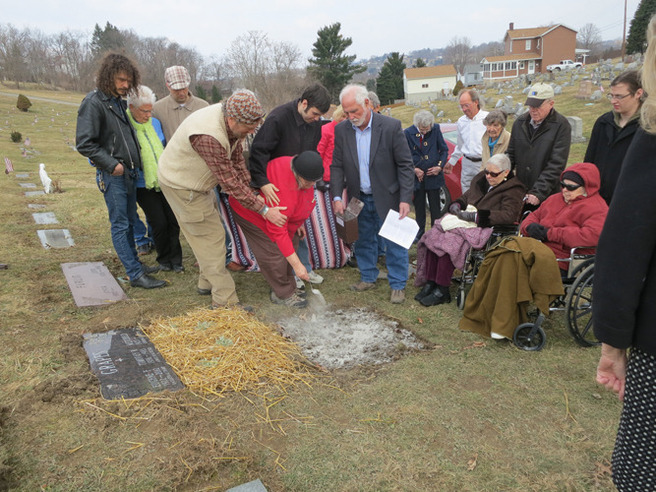By speaking with my Grandfather, I learned that for him the war wasn’t quite as fast paced as I thought it would’ve been. It still sounds pretty exciting. I would’ve thought that it would be more depressing and sad too.
My Grandpa grew up in a poor family in Massachusetts and in Brooklyn, New York. When the war started he probably thought that it’d be a good opportunity to make a little money, have an adventure, and help him get into college hopefully. He joined the Navy rather than be drafted. The only way that you could get into the Navy was by volunteering. His Brother George also joined the Armed Forces but he went into the Army and fought over in Europe.
My Grandpa joined the Navy July 10, 1942 and in his time serving he reached the rank of 2nd Class Petty Officer. The two jobs he had over the course of war were radio man and radar man. I never knew you had to go through as much training as he did just to get out in the ocean. “First I went to Boot Camp. Then I went to Radio School where I was offered the opportunity to volunteer for PT Boats. I did volunteer and I then went to PT Boat School for two months. Later, I was assigned to a boat and we were taken overseas.”
I learned that a PT boat is a Wooden Motor Torpedo Boat. It has four torpedo tubes in it. It is very small and usually had a crew of only eleven people. Life on the PT boat was very cramped. It would not be the ideal choice of places to work for anyone who’s claustrophobic. Many people who worked with my Grandpa would get a little, “weird”. “Some people got awfully homesick and they would start acting strangely. They would stop shaving and washing and things like that, but once they got notice of a 30 day leave, they’d perk right up. We would be out there for two years at a time and very close quarters so I could understand why people would get a little weird.”
Most of the time Grandpa’s PT boat patrolled around the islands of the Pacific. “The idea was to patrol islands and sneak out and attack much larger ships at night. We had to do it at night or we’d be blown out of the water. We could even sink ships as large as destroyers.”
When the first atomic bomb was dropped, no one on his ship had any idea what it was so they did not know what to think. By the time the second one was dropped they had learned more about it. They expected that the war would be over soon. A week later the war was over. It ended in August of 1945.
You had to get enough points to be discharged and there were many factors that played a part in how many points you needed to get. These included how many years you served, how old you were, if you were married, etc. My Grandpa didn’t have enough points to be discharged when he learned that the war was over. “The war ended in August and I only had 30 points, which was not enough.” So his PT boat landed in the Philippine Islands where he worked until February 6, 1946. During the time he spent on the islands, he worked in a telegraph office.
The Armed Forces had Japanese prisoners to do work for them. They knew that the prisoners would not run off because the Filipinos (people from the Philippines) hated the Japanese and would kill any that they could. So, the Japanese could be trusted to perform menial labor for the Americans.
I really enjoyed doing this project. It was very interesting learning about my Grandfather’s younger years and his service in the Navy.
MORE INFORMATION
The last I had heard, my brother was in the battle of the Bulge over in France in 1945. I hadn’t seen him for several years and thought he was still in France. Then my sister wrote me a letter asking why I hadn’t gone to visit him since he was over in the Philippines. Before then I had no idea that he was there. I found out later that when the war had ended in Europe he was sent over there.
I went to Manila, which was nearby and found out where he was. He was stationed only about 100 miles away so I asked my superior officer if I could go visit and he said I could. So I hitch-hiked over there. It was a tough ride because the roads had been bombed out, it took me all day.
I got there around supper time, and it turned out that my brother wasn’t back yet. When he did get back it had gotten dark. I came up from behind him and hugged him, but he didn’t know who it was, he then said, “Darnit Jimmy get off my back!!” He then turned around and realized that it was me and just about broke my ribs in a hug.


